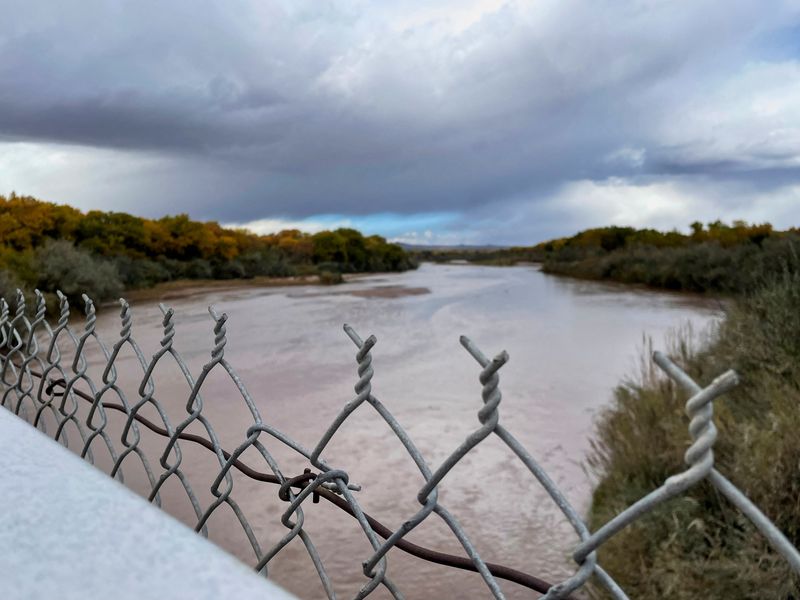By Andrew Hay
ALBUQUERQUE, N.M. (Reuters) - The candidates vying for a New Mexico U.S. House seat are clashing over fossil fuel industry jobs and climate change, setting up voters to decide whether to focus on the environment or the economy.
New Mexico's U.S. second congressional district is among a handful of swing seats which will decide whether Republicans retake the U.S. House in Nov. 8 midterm elections.
Polls show issues like climate change and abortion are important but the economy may be the driving factor in a state that is one of the poorest in the country and also a top global oil producer.
First-term Republican incumbent Yvette Herrell is known as a defender of the Permian Basin oil and gas sector, a region she represents. In an interview with Reuters, she said she saw no link between the U.S. fossil fuel industry and climate change, a statement at odds with the scientific consensus linking emissions of methane and volatile organic compounds to a warming planet.
Herrell must attract conservative Democrats and independents to retain her seat, according to University of New Mexico politics professor Michael Rocca. One recent poll found the race a toss up while another gave Herrell a double-digit lead.
Her Democratic opponent Gabe Vasquez is critical of the oil and gas industry's environmental impact and advocates a gradual switch to renewable energy to counter climate change, an issue judged important by half of U.S. voters, based on polls.
He is among progressive politicians in oil-dependent U.S. states whose policies put them at odds with a fossil fuel industry that is a huge source of revenues for government programs.
The New Mexico district has seesawed the last three elections but leans more Democratic, according to polling site FiveThirtyEight, after the political map was redrawn this year to include suburban areas of Albuquerque, New Mexico's largest city hundreds of miles from the southeast oil patch.
RIO GRANDE RUNS DRY
Some voters in West Side and South Valley Albuquerque areas believe fossil-fuel-driven climate change is harming their quality of life and the livelihoods of farmers.
The Rio Grande river ran dry in the South Valley for the first time in 40 years in August just months after smoke from the state's biggest ever wildfire shrouded the working-class neighborhood.
"I've lived here all my life. I've never seen it run dry," said Theresa Dunworth, an accountant who works with a farm group in the South Valley where centuries-old "acequias" or channels irrigate fields. She voted for Vasquez.
South Valley restaurant owner and Herrell voter Kathy Alvarez was worried about Rio Grande water shortages but focused on the economy.
“Yvette wants to keep the oil and gas field going, Gabe doesn’t want to keep those jobs for all those people,” said Alvarez as a Christian radio station played at Kathy's Carry Out.
Vasquez has been hit with attack ads saying his policies will cost the state tens of thousands of oil and gas jobs.
The former Las Cruces city councilor and conservationist said he supported a two-track energy approach to safeguard workers and the environment.
"For now, we must protect jobs in the fossil fuel industry while also holding polluting companies accountable for cleanup, environmental damage and gouging us at the gas pump," he said in a statement to Reuters.
Herrell, a target of the League of Conservation Voters and other green groups, said New Mexico's emission controls meant the state's oil and gas industry was far cleaner than foreign competitors and did not contribute to climate change.

She supported talks to possibly raise royalties for drilling on public land and did not rule out a transition to renewable energy sources once their technology and infrastructure was sufficiently developed. In the meantime, she said the country needed traditional energy sources to meet rising demand.
"To be reliant on foreign adversaries for energy is absolutely ludicrous," Herrell said.